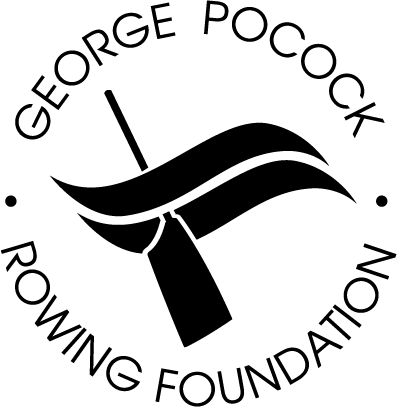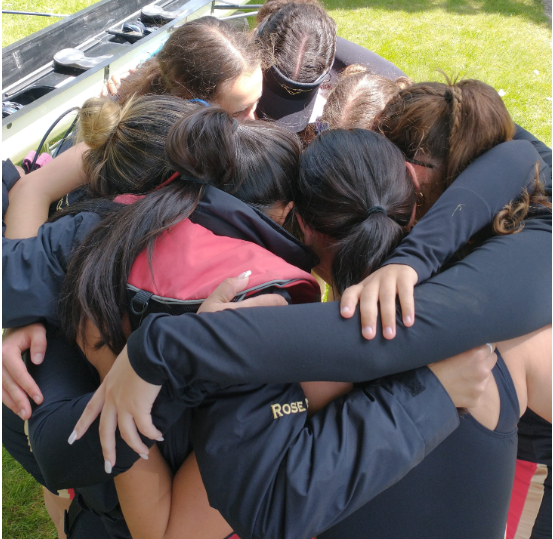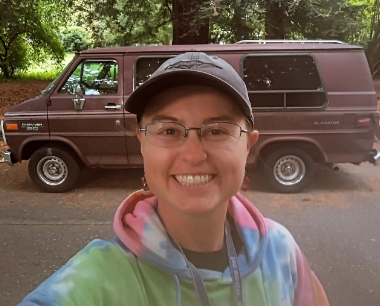Why It’s Important to Make Boats Go Fast
By Leslie Walker
Ok, everyone. At this point, there are some key basics that every rower really should already be aware of:
1. The state of diversity in rowing is real bad.
2. Diversifying rowing (like working for equity anywhere) is hard work.
3. Many things have been accomplished to make rowing spaces more inclusive but we are not yet where we want to be.
I have seen lots of articles/statements/newsletters whose main thrust is some combination of these three points. And, yes. I agree. Rowing occupies a super messed-up corner of our super messed-up culture, and in many ways the rowing world is a showcase of all the ways that white supremacy makes us super messed-up. And the work of undoing that is difficult, and everyone should commit to doing the work anyway. Absolutely.
But also, in 2024, are we really still just now at the point where we are convincing each other we have an equity problem in our sport and that we should address it? Is that really the best we can do? Saying that over and over to each other feels pretty behind-the-curve.
I want to move past that. Removing barriers to rowing is not rocket science: we now need to actually DO it. Yes, I want to see the articles about who is doing the work and learn from them. Yes, I want to go visit those programs (shout out Pocock Foundation)! Yes, I want to expose myself to even the elementary parts of the process as much as possible and learn new insights about how to do it better -- but honestly, if the goal is simply "increase access to rowing" where "rowing" can mean erging in PE class or joining a two-week summer learn to row camp, then it just doesn't seem that complicated. Difficult, for sure, and a worthy starting point, but not the whole story.
What I haven't read articles about, what I haven't yet seen in the public discourse, is why and how we should successfully increase access to rowing, consistently sustain diverse rowing teams, AND go really super fast. At the same time. Not like, one part of your team is diverse and another part of your team is fast, but the whole team is all about being equitable and sustainable and going really fast.
It's odd to me, because for me the whole REASON to row, the whole REASON to share rowing with other people like your hair is on fire, has never been merely about "being on the water." When rowers say "rowing changed my life," we aren't talking about splashing around wearing a life jacket for two weeks in the summer (although this is exactly where we could start!). We are talking about pushing ourselves harder than we pushed ourselves ever before. We are talking about forming connections with other humans, deeper than the connections we could create anywhere else. We are talking about ripping ourselves open and accessing something inside ourselves that we didn't know was there.
In the face of the grand goals of equity, diversity, accessibility, and inclusivity, why should it matter to also make rowing boats go fast?
1. Because it's difficult work. Setting out to row really well and really fast, especially on an ongoing basis, when winning times are getting faster every year, is hard. Winning medals is really difficult, not a sure thing, and not 100% under your control. And, guess what? The work that is needed to change our country, the work that is going to make our world better is also really difficult, not a sure thing, and not 100% under our control. It is messy. The results do not come in a linear fashion: Sometimes you win unexpectedly and other times when you think you have all your ducks in a row, you end up behind. But movement leaders have been telling us for centuries that that work is still worth doing. We have to teach each other to do it, support each other to do it, and learn from each other how to do it. If we want a better world, we have to practice choosing to do that kind of work, not finding other things to do.
2. Because winning is a long shot. It is important to teach people to have audacious goals and then teach them to see themselves reaching those goals by chipping away day after day. What I learned from rowing is that little old me could do big things. Not medium things. Rowing taught me I was tough enough, dedicated enough, powerful enough, to try and Actually Win. To go for it. To believe in the big goal, to hold that Big Goal sacred in my heart and not turn to easier, smaller things. Not because I was talented, not because I was gifted, but purely because I wanted it and was willing to work for it. That magical moment that all rowers know happens when your crew realizes, all at once, that they are going to create something AMAZING together. It is magical because it is BARELY within reach. It is magical because it is not a moderate, reasonable, sensible goal. It is magical because it is a REACH.
3. Because it requires us to connect deeply with one another. Rowing is work: physical work, mental work, personal emotional work, and -- most importantly -- work on connecting to other people. In my experience in rowing, when the speed and pressure and stakes increase, the proportion of your work that must be spent on relationships and communication also increases. The faster you go, the more pressure you feel, the more the results matter to you, the more attention you must put toward a ruthlessly precise unity of purpose. If we paddle around twice a week with poor grip and bad posture, we can get away with a medium level of social connection and work that doesn't change our lives. We do not need to settle for that, you guys! Humans can do incredible things together, if we see and know each other deeply and feel the same heartbeat. What could be more important than teaching each other how to build that?
Written by Leslie Walker, who is taking a trip around the country to learn from teams making fast boats and increasing access to rowing.
Contact Leslie:
WessEwalker@proton.me
https://rowedtripusa.substack.com/
https://www.instagram.com/rowedtripusa/
Thanks again for reading! Please share this with friends if you think they’d like to keep up with this trip as well!
Leslie Walker



